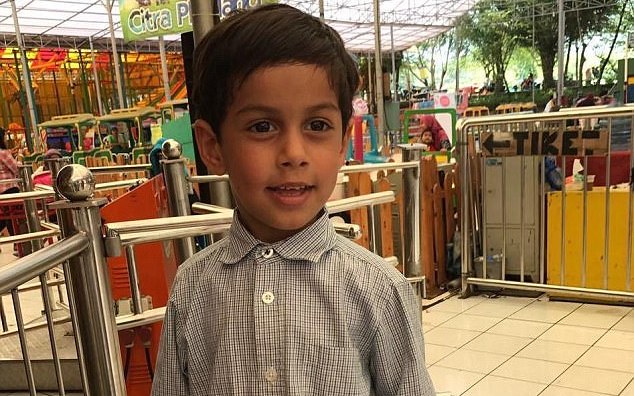Sajjad Mohammed Al AbuAbdalla was a three-year-old boy who was shot on 12 June 2017 while driving with his mother, uncle, and sister through their hometown of Awamiyah in eastern Saudi Arabia. The family was on their way to Sajjad’s maternal grandparents’ house to celebrate Ramadan and break the day’s fast. As their car passed the Awamiyah police station, the sound of gunfire rang out. As the car drove away, Sajjad’s mother saw that Sajjad was slumped over and realized he was bleeding. A bullet had pierced the door next to Sajjad and passed through his wrist and abdomen. He suffered greatly for the next two-months before he died on 9 August.
After the shooting, Sajjad’s family rushed with him to a series of clinics and hospitals seeking medical aid. He was eventually admitted to surgery at the Dammam Medical Complex, but developed an intestinal blockage from which he never recovered.
Witnesses report that the shots were fired without warning from the armored vehicles parked in front of the Awamiyah police station. There were no clashes or disturbances in the area at the time. Roadblocks placed by security forces on the approaching street force cars to turn off onto a side road before reaching the police station. A speed bump on the turn-off further slows traffic. At the time the shots were fired, the family’s car was slowing and turning away from the police station. There is no credible scenario under which it could have been considered an imminent security threat to the security forces posted there. Residents believe the security forces were targeting civilians at random in reprisal for the death of an officer the previous day.
Awamiyah has been under siege from a Saudi military operation since May this year. The area is populated by citizens of Shia faith who face discrimination from Saudi Arabia’s Sunni central authorities. This led to protests during the Arab Spring in 2011, and military vehicles have been stationed at the town’s police station since that time. At the start of 2017 the authorities announced their intention to demolish the town’s historic Musawwarah neighborhood. Faced with local resistance, demolitions were launched under the auspices of a major military incursion on 10 May 2017, stripping away any pretense that this supposed “development” project was intended for the benefit of local residents. Since that time there have been armed clashes in Awamiyah between authorities and militants, though as noted the area around the police station was calm at the time Sajjad was shot.
Since Sajjad’s death, Saudi authorities have done nothing to effectively investigate who murdered the child. Eyewitness testimony has either not been taken or has simply been disregarded, and the Saudi government asserts without any presentation of evidence that those responsible were “terrorists” operating in the area.
ADHRB calls for an independent investigation into what happened to Sajjad. Customary international law prohibits the targeting of civilians during armed conflicts, whether internal or international. The government has a duty to investigate and hold responsible those who decided to use military force against a civilian vehicle. Since the Saudi government has made clear that it will not act on its responsibility, it is left to the international community to seek justice for Sajjad and other victims in Awamiyah.





